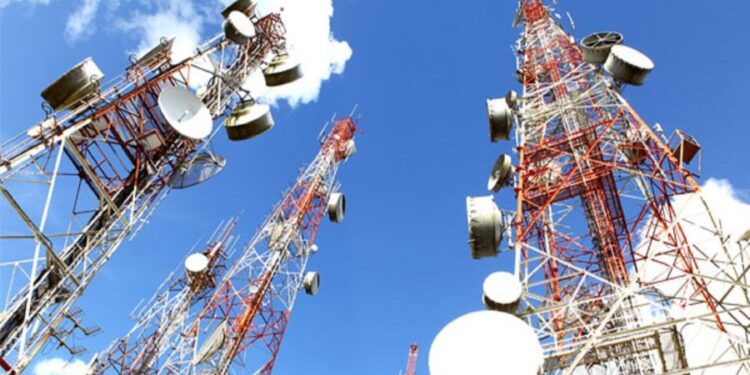Nigeria’s telecommunications operators have issued an urgent warning that network services across the country could deteriorate significantly in the coming days unless security agencies take immediate action to combat the escalating theft and vandalism of critical telecom infrastructure.
The Association of Licensed Telecommunications Operators of Nigeria has raised alarm over what it describes as an unprecedented wave of sabotage that is undermining billions of naira in recent network investments and threatening the nation’s digital backbone.
Speaking anonymously, a senior executive from a major mobile network operator revealed that despite substantial investments following recent tariff adjustments approved by the Nigerian Communications Commission, vandals are systematically dismantling newly installed facilities and selling them in open markets without interference.
“At the wake of the marginal price adjustment that the NCC approved for the sector, we promised to optimize our networks to give Nigerians a very robust service,” the executive explained. “But what we are seeing after making such huge investments is that vandals are carting away our facilities without a challenge and selling them in open markets.”
The official emphasized that current service quality issues stem directly from security challenges rather than operational deficiencies, warning that conditions will worsen without urgent intervention.
In a joint statement signed by ALTON Chairman Engr. Gbenga Adebayo and Publicity Secretary Damian Udeh, the organization highlighted how criminal activities are frustrating industry progress despite significant government support initiatives.
“Since the Federal Government’s decisive interventions earlier this year, our members have committed unprecedented levels of investment in network optimisation and capacity upgrades,” ALTON stated, noting that the industry is experiencing its largest investment cycle in recent years.
The association documented widespread vandalism incidents across multiple states between May and July 2025, with cell sites in Rivers, Ogun, Osun, Imo, Kogi, Ekiti, Lagos, and the Federal Capital Territory among the worst affected areas.
“These acts of sabotage have significantly disrupted network services, causing widespread connectivity blackouts, leading to degradation of services and severely impacting millions of subscribers,” the statement revealed.
Criminals are targeting essential equipment including power cables, fiber optic cables, rectifiers, diesel generators, batteries, and solar systems, with stolen materials being openly resold for domestic use or traded through black markets.
ALTON identified Delta, Rivers, Cross River, Akwa Ibom, Ogun, Ondo, Edo, Lagos, Kogi, Kaduna, Niger, Osun, Kwara, and Abuja as experiencing the highest attack frequencies, resulting in prolonged service downtimes, network congestion, and widespread communication blackouts.
The organization expressed particular concern about the growing black market for stolen telecom equipment, urging Nigerians to recognize telecommunications assets as critical national infrastructure deserving protection.
“These assets serve us all; they enable our banking systems, security infrastructure, emergency response, education, health services, and the very platforms that power daily communication. An attack on telecom infrastructure is an attack on our economy and our security,” ALTON emphasized.
Beyond vandalism, the operators identified road construction activities as another major disruption source, with underground fiber optic cables frequently damaged during highway and urban development projects, causing significant service outages and financial losses.
ALTON has called for immediate intervention from key security stakeholders, specifically requesting the Office of the National Security Adviser, Inspector-General of Police, Director General of the Department of State Services, and Commandant General of the Nigeria Security and Civil Defence Corps to deploy necessary resources for infrastructure protection.
Describing the situation as “desperate and urgent,” the association demanded coordinated national action involving federal, state, and local governments, regulators, media organizations, civil society groups, and the general public.
“Our national security, economic stability, and digital future depend on it. The time to act is now,” ALTON concluded, warning that failure to address the crisis could result in a complete breakdown of communications infrastructure across Nigeria.

















